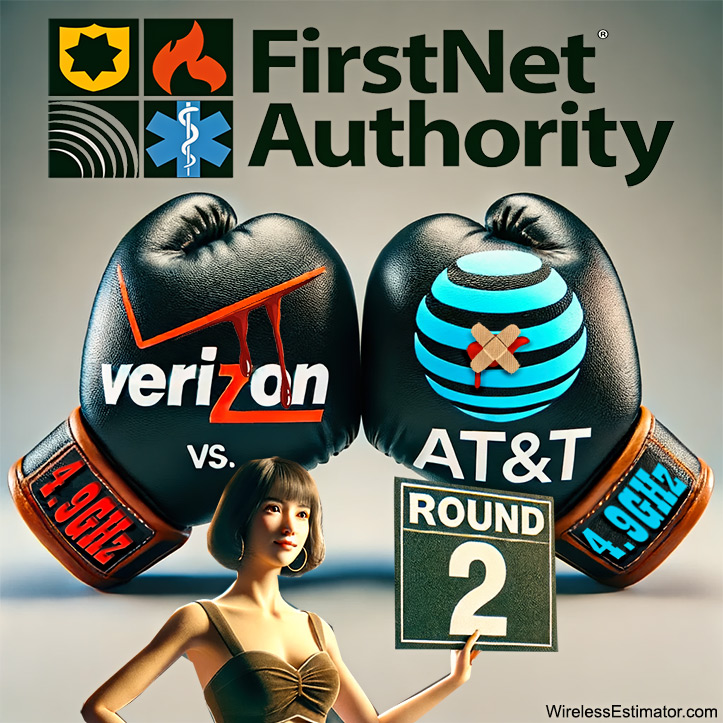
A $14 BILLION GIFT? Once again, Verizon has petitioned the FCC not to grant the FirstNet Authority and its national contractor, AT&T, control of the 4.9 GHz band generally dedicated to public safety,
This time, the carrier took the gloves off and was less diplomatic, stating gifting valuable mid-band spectrum to a single provider would create an unfair advantage, mainly when there is an urgent need for additional mid-band spectrum for commercial use.
Verizon is no longer letting proxies speak for it in the ongoing debate over AT&T’s FirstNet proposal to become the national manager of the 4.9 GHz public safety band. In a recent filing with the Federal Communications Commission (FCC), Verizon has made its stance clear: the proposal would disrupt the public safety spectrum marketplace and undermine local public safety control.
In a letter dated June 11, 2024, Verizon’s Senior Vice President of Federal Regulatory & Legal Affairs, William H. Johnson, outlined the company’s position. The letter emphasized Verizon’s support for the Coalition for Emergency Response and Critical Infrastructure’s (CERCI) positions.
Verizon opposes the Public Safety Spectrum Alliance’s (PSSA) proposal to assign the 4.9 GHz band to FirstNet, arguing that it would effectively hand over control of the band to AT&T, disrupting the competitive landscape for public safety and commercial wireless services.
The crux of Verizon’s argument centers on the lack of evidence supporting the need to assign another 50 megahertz to FirstNet. The carrier points out that AT&T already provides its FirstNet customers with priority access to both Band 14 and all of AT&T’s commercial bands.
According to Verizon, there is no clear explanation or documentation of how AT&T currently utilizes Band 14 or the extent to which it is used for public safety versus commercial purposes.
Verizon warns that PSSA’s proposal would undermine the competitive public safety and commercial wireless services marketplace.
The company highlights that its Verizon Frontline service, which supports over 35,000 agencies across the United States and holds more than 50% of the primary first responder voice service market, competes directly with AT&T’s FirstNet service.
Verizon argues that gifting valuable mid-band spectrum to a single provider would create an unfair advantage, mainly when there is an urgent need for additional mid-band spectrum for commercial use.
The economic implications of the proposal are also significant. Verizon cites a valuation by the Brattle Group, which estimates the 50 megahertz of 4.9 GHz spectrum at over $14 billion.
Verizon contends that granting this spectrum to AT&T without a competitive process would result in a substantial windfall for a single provider, undermining the competitive wireless marketplace and U.S. spectrum policy.
Moreover, Verizon underscores the legal issues associated with the proposal. CERCI has detailed that assigning the 4.9 GHz band to FirstNet would be unlawful, as the FCC lacks the authority to allocate any spectrum beyond Band 14 to FirstNet.
Verizon also points to recent reports from the U.S. Department of Commerce Office of Inspector General, highlighting significant compliance issues and oversight concerns regarding FirstNet and AT&T.


















